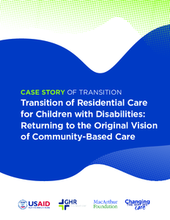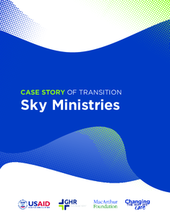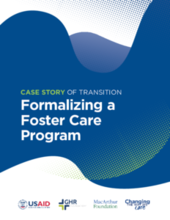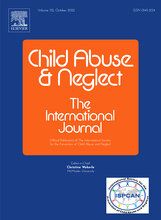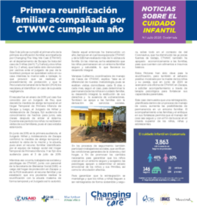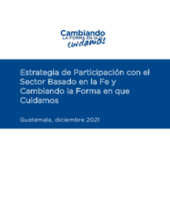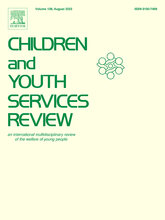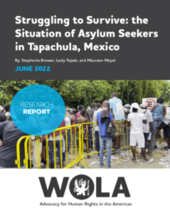This page contains documents and other resources related to children's care in the Americas. Browse resources by region, country, or category.
Displaying 111 - 120 of 1438
The Returning to Original Vision case story demonstrates reunification of children with disabilities as a critical step in transition. It also highlights the challenges of maintaining organizational vision within a process of transforming services.
This case story is meant to illustrate transition, the actors involved, the challenges and the success factors; recognizing that each transition is an individual process with different starting points, different dynamics and different evolutions.
The story of Identity Mission tells how a program focused on supporting vulnerable children by providing family-based care solutions alongside the local church came to be and what the challenges were to creating a mission focused on family. It is the story of one person’s own transition.
This webinar shares the process that Family for Every Child is using to facilitate the development of global inter-agency guidance on Kinship Care, aimed at policy makers and programme managers.
Debates exist regarding whether foster youth should be asked about their placement preferences following removal, with only youth aged 12 years and older at times assumed legally competent to provide input. The present study evaluated whether placement-related factors known to predict youth's well-being also shape their placement preferences and whether preferences differ between youth below and above the age at which they are considered legally competent to provide input.
El estudio de caso, plasmado en una página, está dirigido a posibles donantes, público interesado y actores vinculados a la reforma del cuidado infantil, que desean aprender sobre los procedimientos relacionados con el primer caso exitoso de reunificación familiar a cargo de la Iniciativa Cambiando la Forma en que Cuidamos que opera en Guatemala y además sobre el importante papel de la gestión de casos. El presente estudio de caso fue escrito en julio del 2020, un año después de la reunificación.
El presente documento pretende presentar una estrategia integral que involucre cuidadosamente al sector basado en la fe de Guatemala, con el objetivo de apoyar y promover el cambio en la forma en que el cuidado de los NNA es proporcionado por estos actores importantes y alineado con la visión de CTWWC. La estrategia está dirigida a quienes trabajen en la promoción de la transformación de servicios y el derecho a vivir en familia, y su trabajo está directamente relacionado con organizaciones basadas en la fe, es decir, directores de hogares de abrigo y protección, Obispos, sacerdotes, pastores, líderes religiosos y laicos comprometidos con el desarrollo humano integral de los NNA.
This study explores the state of kinship care in British Columbia (BC), Canada 10 years after the implementation of major policy reform designed by the provincial government to improve services to kinship caregivers.
This paper found that there was marked overrepresentation of First Nations children in the child welfare system in Ontario, Canada. These children were three times as likely to be investigated as white children and more likely to be placed when controlling for investigation concerns. The paper concluded that recent policy changes have not brought change to this overrepresentation.
This report follows the route of asylum seekers arriving in Tapachula. It draws on a March 2022 visit during which the researchers conducted field documentation and interviews with asylum seekers, government officials, UN agencies, and civil society organizations providing services to migrants. The report highlights abuses, arbitrary treatment, and steep obstacles faced by asylum seekers at each step of their process.


